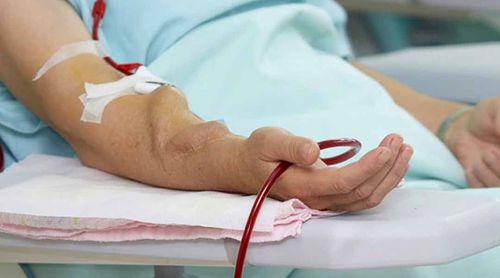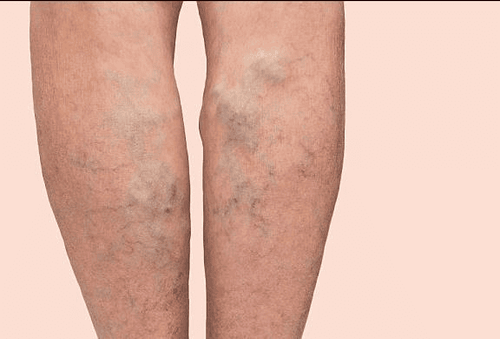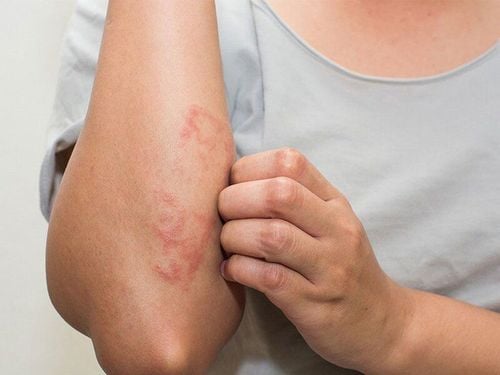This is an automatically translated article.
The article was professionally consulted with Specialist Doctor I Le Van Quang - Department of General Surgery - Vinmec Nha Trang International General HospitalAllergic vasculitis or Henoch - Schonlein disease (HSP) is an acute secondary disease that causes widespread damage to the microvascular system in many organs such as joints, skin, gastrointestinal tract, cardiovascular...
1. What is allergic conjunctivitis?
Allergic capillary inflammation is an autoimmune disease with diffuse damage to the microvascular system in many organs in the body, causing inflammation and bleeding of small capillaries in the skin, joints, intestines, and kidneys of the patient.
Allergic conjunctivitis predominantly occurs in children and young adults with 50% of cases occurring before 5 years of age and 75% occurring between the ages of 3 and 10, prevalence between the ages of 10 and 10. 2-16 about 2%, the incidence in men is 2 times that of women.
This disease is related to an autoimmune disorder, so the disease does not spread between infected people and contacts.
2. Causes of allergic capillary disease
Currently, the cause of allergic conjunctivitis is still unknown. Many studies have shown that allergic conjunctivitis is associated with the following:
Onset after a patient has had an upper respiratory tract infection several weeks before the onset of symptoms with a rate rates range from 30 to 50%. Caused by bacteria or viruses such as staphylococcus, streptococcus, tubercle bacilli, fungi. Some cases of disease appear after patients use drugs, after vaccination and after being bitten by insects. The disease is also related to atopic dermatitis, atopic dermatitis, after eating strange foods, when the weather changes.
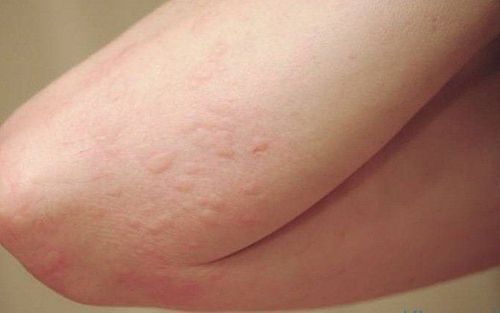
Bệnh liên quan tới viêm da dị ứng khi thay đổi thời tiết
3. Symptoms of allergic capillary disease
The most common symptoms of allergic conjunctivitis include:
Purpura : Spotted and nodular under the skin on the flexors of the forearm, shin, buttocks, thighs ... not itchy. The rash is uncommon on the trunk, sometimes appearing on the ears, nose, and genitals. Joint pain: occurs in 75% of cases of allergic capillary inflammation. Joint sites adjacent to the bleeding site are affected causing pain, limited range of motion, peri-articular edema, and tendon pain. Gastrointestinal symptoms: The patient appears to have abdominal pain around the navel, dull, constant pain. Patients may have epigastric pain, diffuse or localized, with vomiting and nausea. Accompanying symptoms such as gastrointestinal bleeding, glomerulonephritis, hematuria, proteinuria. In particular, allergic conjunctivitis in children has typical symptoms such as purpura, vomiting, abdominal pain... eat... Parents need to monitor their children continuously and take them to a doctor as soon as symptoms are detected. If the disease is left for a long time, it will affect organs such as the heart and lungs, causing severe symptoms, difficult to treat and very life-threatening.
4. Is allergic conjunctivitis dangerous?
Allergic capillary disease causes many dangerous complications such as:
4.1 Joint damage Manifestations of joint damage include: Joint pain, moderate arthritis, limited range of motion; lesions are usually symmetrical; periarticular edema, sometimes associated tendon pain. Joint damage can be cured in a few hours or days, sometimes it can recur but without deforming the joint. Muscle damage can be seen, and a muscle biopsy can reveal necrotic lesions on a muscular artery. 4.2 Gastrointestinal lesions Initially, the patient may have diffuse or localized epigastric pain, associated with vomiting and nausea. This pain can last for several hours or days or recur. In addition, the patient may have gastrointestinal bleeding with manifestations of vomiting blood, black or bloody stools accompanied by severe abdominal pain. The latter can lead to several dangerous complications: Acute intussusception is the most serious complication of gastrointestinal injury observed in 5% of cases. Intestinal obstruction, infarction, or perforation of the colon, dilated colon may occur in patients with allergic capillary disease. In this disease the patient may develop acute pancreatitis. 4.3 Damage to the kidney
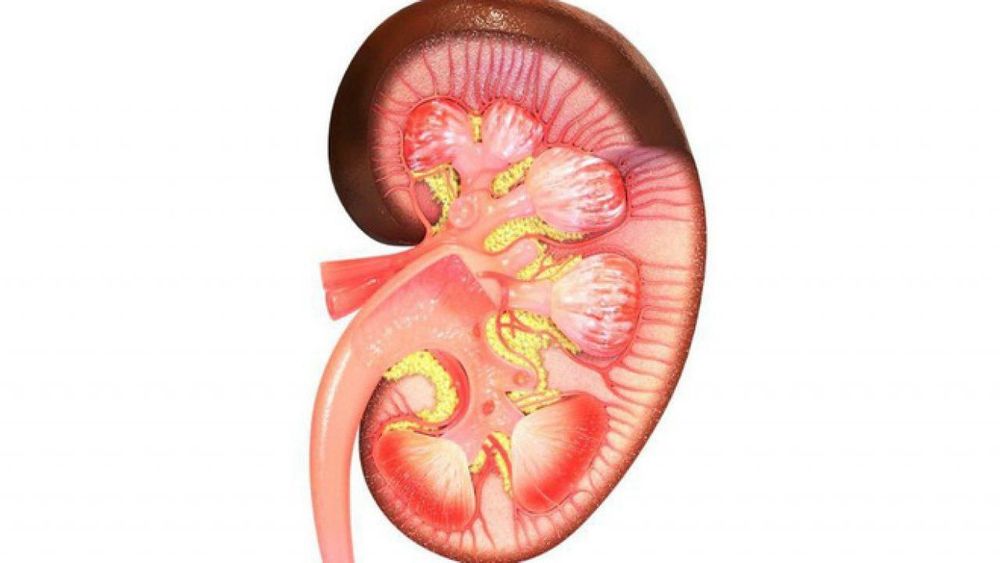
Bệnh viêm mao mạch dị ứng gây tổn thương thận
Manifestations of kidney damage such as: kidney gross or microscopic hematuria, Proteinuria in the urine, prolonged proteinuria often combined with microscopic hematuria, sometimes with leukuria without infection... Some children have a rapidly progressive glomerulonephritis syndrome. 4.4 Some other dangerous complications For male genitalia: Men can have testicular inflammation and testicular torsion when suffering from this disease. Cardiopulmonary damage: When suffering from allergic capillary disease, the patient may have myocardial infarction, pulmonary hemorrhage or pleural effusion. Vinmec International General Hospital is one of the hospitals that not only ensures professional quality with a team of leading doctors, modern equipment and technology, but also stands out for its examination and consulting services. and comprehensive, professional medical treatment; civilized, polite, safe and sterile medical examination and treatment space.
Please dial HOTLINE for more information or register for an appointment HERE. Download MyVinmec app to make appointments faster and to manage your bookings easily.




